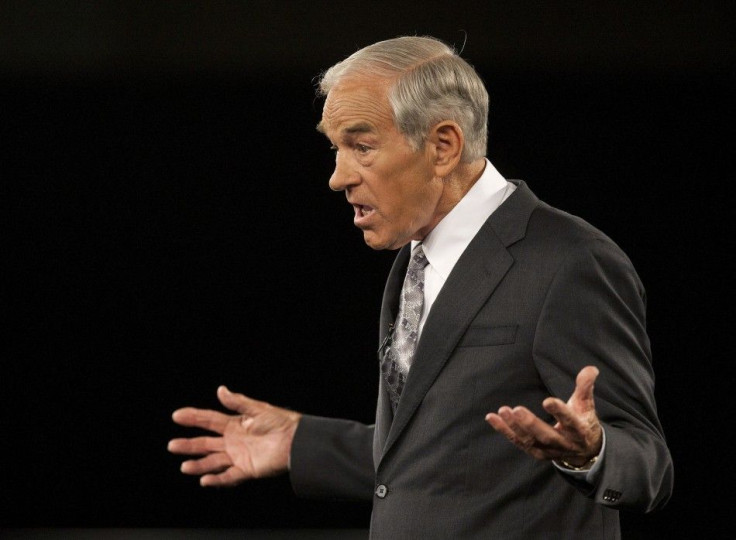Ron Paul Winning the GOP Presidential Primary: Milbank

In a somewhat misleadingly titled Thursday column, the Washington Post's Dana Milbank argues that Ron Paul is winning the Republican presidential primary -- not by conventional measures like public polling, but based on the influence of his ideas.
The Republican congressman from Texas is a perennial presidential candidate, and he has in past runs hovered on the ideological fringes of the race. But the brand of small-government libertarianism that Paul has espoused over the years has shifted into the mainstream, powering the Tea Party's ascendance -- including the election of Sen. Rand Paul (R-KY), Ron's son -- and changing the debate.
The success of this message is way beyond my expectations, Milbank quotes Paul as saying recently. Who would've ever dreamed that, after 100 years, we'd be talking about the Federal Reserve at debates? I mean, this is fantastic.
When Texas governor Rick Perry characterized the Fed's monetary policies as treasonous, it provoked gasps and condemnations, but the controversy failed to dislodge Perry from his status as poll-affirmed frontrunner. Paul's hostility to the Fed is well documented -- he told Milbank that Bernanke isn't the problem. The Federal Reserve Act of 1913 is the problem, but has never before gained such wide resonance.
In the speech announcing his candidacy, Perry swore to make government as inconsequential in your life as I can. Rep. Michele Bachmann (R-MN), who until Perry's appearance in the race was the anointed candidate of the limited government Tea Party voters, used the speech announcing her candidacy to repudiate the idea that government can create jobs, and make a better life for all of us, even make us healthier. Both statements echo Paul's governing philosophy, which rejects those who promote government solutions for all our ills in favor of freedom and limited government.
That's not to say that Paul has introduced the idea of reducing government into the conservative mainstream -- it is a central tenet of the Republican party. But when it comes to taking on the Fed, he has shifted the debate, Milbank argues.
Last time, in 2008, Paul was ignored because his ideas sounded crazy, Milbank writes. This time, he's being ignored because his ideas have become commonplace.
© Copyright IBTimes 2024. All rights reserved.




















